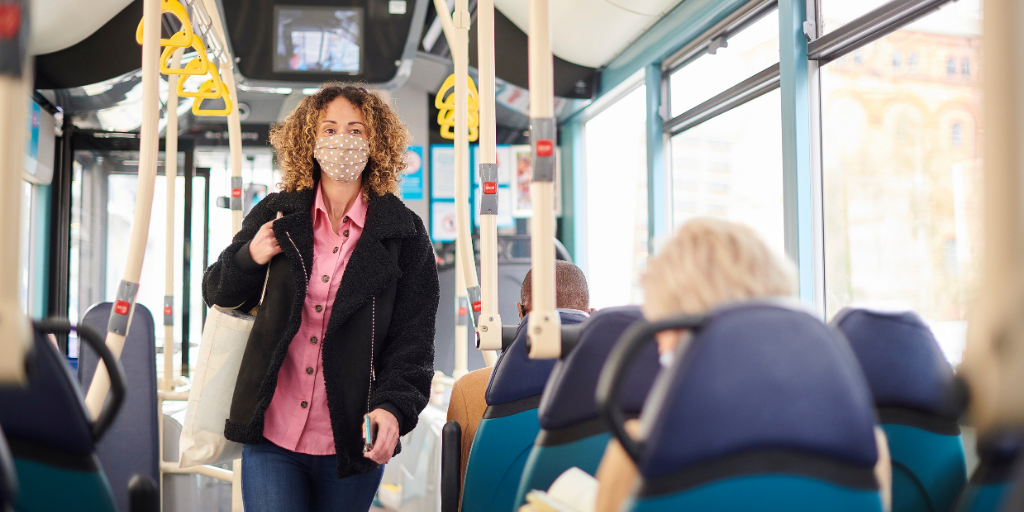This month, the MBTA proposed cuts to transit service in an attempt to close its budget gap induced by COVID-19. Transit advocates and community organizations — including MassINC — have been vocal in their objections to the cuts, which would disproportionately impact minority, lower-income, and Gateway City communities.
Roseann Bongiovanni is the executive director of GreenRoots Chelsea, a community-based organization with a primary focus on environmental justice. Her organization joined the Transit Is Essential coalition that is urging the MBTA to make no permanent or long-term decisions regarding service, and instead advance affordability for all transit riders.
Roseann has witnessed firsthand just how insufficient transit options are already for Chelsea residents, who desperately depend on them.
“They’re often waiting up to 45 minutes to get on the bus to get into and out of the city. We’ve heard dozens and dozens and dozens of stories of folks in Chelsea who have been stranded on the 111 or who have been delayed and missed picking up their children. Daycares are calling them, threatening to report them,” she says.
Cutting services even further would exacerbate the already dire needs of a community that’s been one of the most hard hit in Massachusetts by the pandemic. Roseann says the pandemic has made life in Chelsea “incredibly difficult.” Data show 80 percent of all workers in Chelsea are in essential positions. Roseann describes the effect of potential transit service cuts as “devastating.”
“This is our lifeline to work,” she says, as the luxury of being able to work from home is rarely an option for Chelsea workers. The reduced transit options would be yet another strain placed on the many residents in Chelsea and other Gateway Cities who owe back rent from losing jobs and wages, and face eviction and homelessness.
Roseann desperately wants for state and federal leaders to acknowledge the outsized burden cities like Chelsea are shouldering, thank them, and start investing in assistance ranging from food to health to housing and beyond.
“You know,” she says, “we can’t take on all of the burdens. We can’t continue to sacrifice our lives every single day.”
Listen to the full episode:
